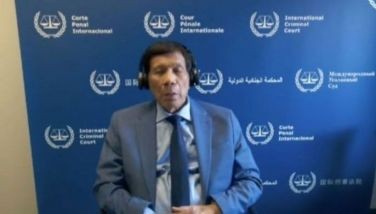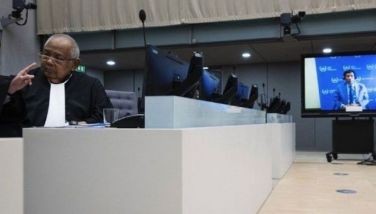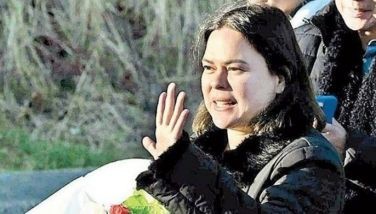Flying V flies high

One of the better offshoots of the oil industry deregulation set in motion in 1998 with the passage into law of the Downstream Oil Industry Deregulation Act (RA 8479) was the unleashing of new “independent” oil companies.
After 14 years of operation under a deregulated environment, the oil industry underwent a dramatic facelift. One refinery was mothballed and presently only two remains, the Petron refinery at Bataan and Shell at Tabangao, Batangas.
But the most evident change was the mushrooming of so called independent oil companies, a label attached to differentiate them from the majors.
We shall be featuring the more successful ones starting with today’s column highlighting their respective contributions to an industry which has gotten mixed reviews the past decades.
‘Gambling’ on oil retailing
One of those that had set up business then was TWA, Inc., better known to those who gas up as Flying V and in business circles as the brainchild of veteran oil man Ramon F. Villavicencio. Years before the oil deregulation law was passed, in 1994, he “gambled” on a future in the oil retailing industry by setting up TWA.
Villavicencio, now the chairman of TWA, is still considered the pioneering company’s visionary. When many saw only the adversaries of going against the “majors” of the industry, he saw the opportunities.
More than getting riled up by the challenge of snatching sales from the big operations of the multinational oil companies, he was egged on by the belief that the Filipino deserved access to alternative sources of petroleum products that have the same quality but priced lower.
To this day, 15 years after Flying V set up its first service station in Hagonoy, Bulacan, the upstart independent oil company had moved on to achieve one milestone after another. To date, the independent has set up more than 300 stations all over the country.
Competitive
And even if Flying V has continued to price its fuel products at service stations and commercial accounts at very competitive levels, its robust operating financial reports have proven that, yes, there is still money left to pay for salaries and other expenses, and modest earnings for shareholders.
The company now has 12 depots spread across the archipelago that serve as its logistical web, further augmented by reciprocity arrangements with other industry players to bolster its supply service efficiency.
The company-owned depots have a total storage capacity of close to 100 million liters, and are strategically located throughout the country. They now play an important role in boosting and maintaining the country is stockpile reserves.
Fueling tomorrow
Villavicencio likes to repeat whenever he can that Flying V is not just a petroleum company, but one that is in the business of fueling tomorrow. Thus, the thrust is to lead in the development of alternative and renewable energy.
Perhaps one of its most endearing traits is its promotion of alternative fuels, notably biodiesel which was launched in 2005 at its Cainta, Rizal station.
TWA had actively lobbied for the promotion and use of biodiesel additives; the passage of the Biofuels Act of 2006 was regarded by Villavicencio as a personal triumph as well as another milestone for the company.
Villavicencio never wavered in the belief that biodiesel and Biodiesel, the carrying brand of the fuel in Flying V stations, reduces serious pollutants such as carbon monoxide, hydro-carbons, and other air toxins while improving engine power and mileage.
So into biodiesel is Flying V that the company established partnerships with USAID and the Department of Energy to promote and develop biodiesel and other biofuels. TWA also has an agreement with Wayne State University in Michigan to use their biofuel energy laboratory to develop further biofuels.
And lately, TWA has boldly moved into renewable energy promotion, particularly solar. The company is moving full-speed in its study to build a two-megawatt photovoltaic solar plant with Sharp Corp. of Japan. The objective is to set up the country’s first solar-powered gas stations.
To be located in Clark Freeport Zone and Subic Bay, the stations will be equipped with solar panels that will produce clean energy to partially power the facilities. These flagship stations will also feature self-service pumps targeted to give motorists cheaper fuel.
In the near future, TWA is looking at the potential of compressed natural gas (CNG) as another transportation fuel that can help reduce ozone-forming emissions. The oil company is now also testing model electric vehicles that would service the public transport sector in future.
Giving back to communities
So forward looking is TWA-Flying V under Villavicencio that it has even given attention to giving back to the community through various corporate social responsibility programs that go beyond random acts of giving and helping or philanthropy.
The oil independent established in 1999 the Academe Foundation Inc. to provide free values formation classes and scholarships to deserving students. The AFI also conducts livelihood and skills training that create employment opportunities for participants.
Other CSR efforts include the adoption of Barangay Pinugay in Baras, Rizal in 2003 where TWA started a community development project. The company has also reached out to over a thousand pre-school children of indigent families through values formation classes in Poro, San Fernando, La Union; Canaoay, San Fernando, La Union; Marahan West, Davao City; and Porac, Pampanga.
Sports is another area where the Villavicencio-led companies are making concrete contributions. Development and promotion of collegiate basketball was given a boost thru active participation and sponsorship of the FilOil Flying V Pre-season and the season-ending Champions League (PCCL) National Collegiate Championship.
Aiming to stay competitive
TWA-Flying V continues to be a maverick in an industry that is seeing its market share challenged by other equally aggressive independent oil companies. And this positioning has given TWA-Flying V confidence that it can compete at all levels to include even the Big Three composed of Petron, Shell and Caltex.
With its sights on broadening service and product offerings to consumers thru a network of 700 stations by 2015, TWA has grown to be one of the strongest independent that was already in the top 150 list of companies operating in the Philippines. This David has proven that sound business practice and a visionary approach can fell any Goliath.
Facebook and Twitter
We are actively using two social networking websites to reach out more often and even interact with and engage our readers, friends and colleagues in the various areas of interest that I tackle in my column. Please like us at www.facebook.com and follow us at www.twitter.com/ReyGamboa.
Should you wish to share any insights, write me at Link Edge, 25th Floor, 139 Corporate Center, Valero Street, Salcedo Village, 1227 Makati City. Or e-mail me at reydgamboa@yahoo.com. For a compilation of previous articles, visit www.BizlinksPhilippines.net.
- Latest
- Trending




























